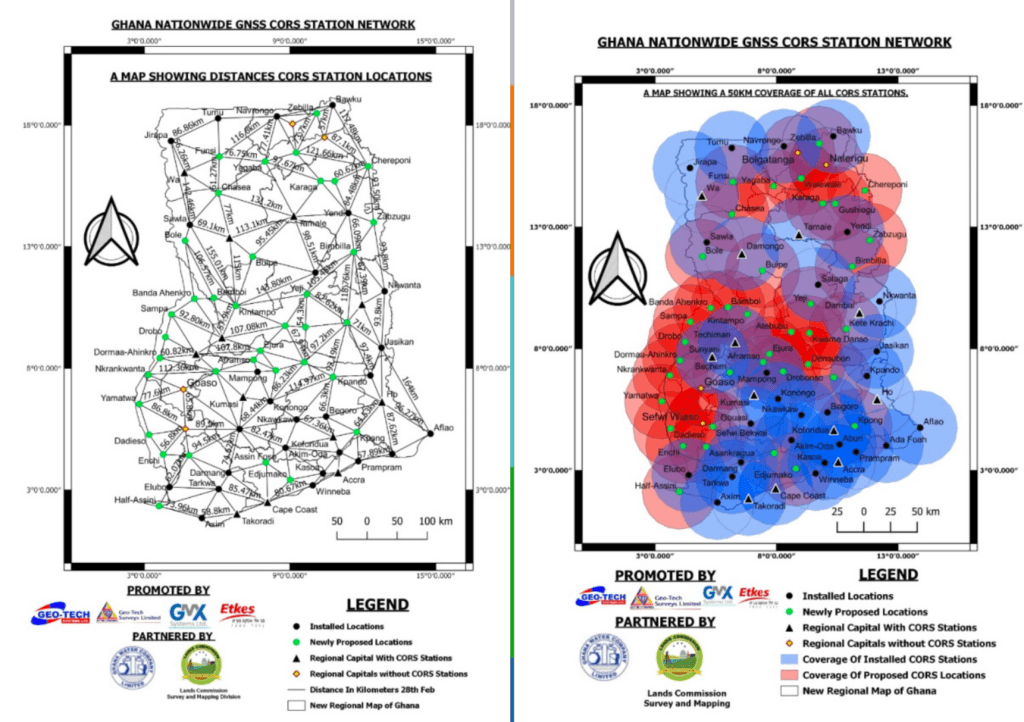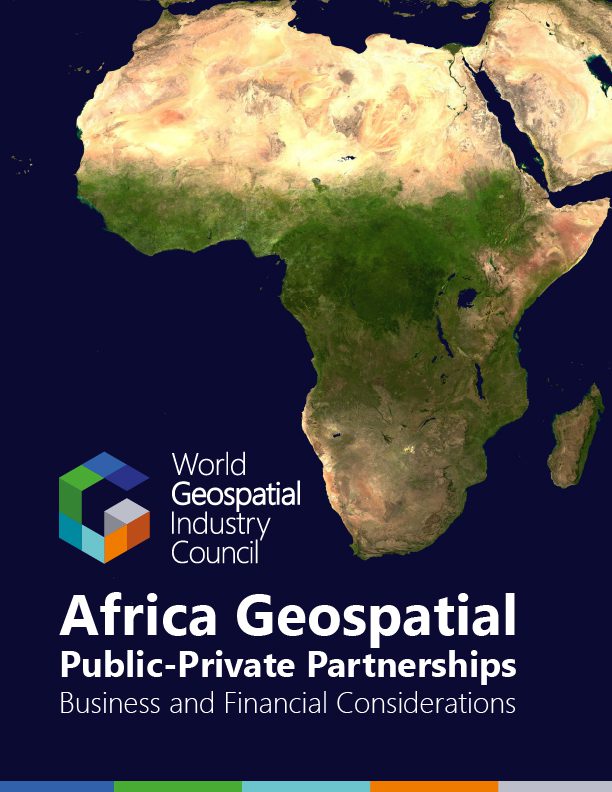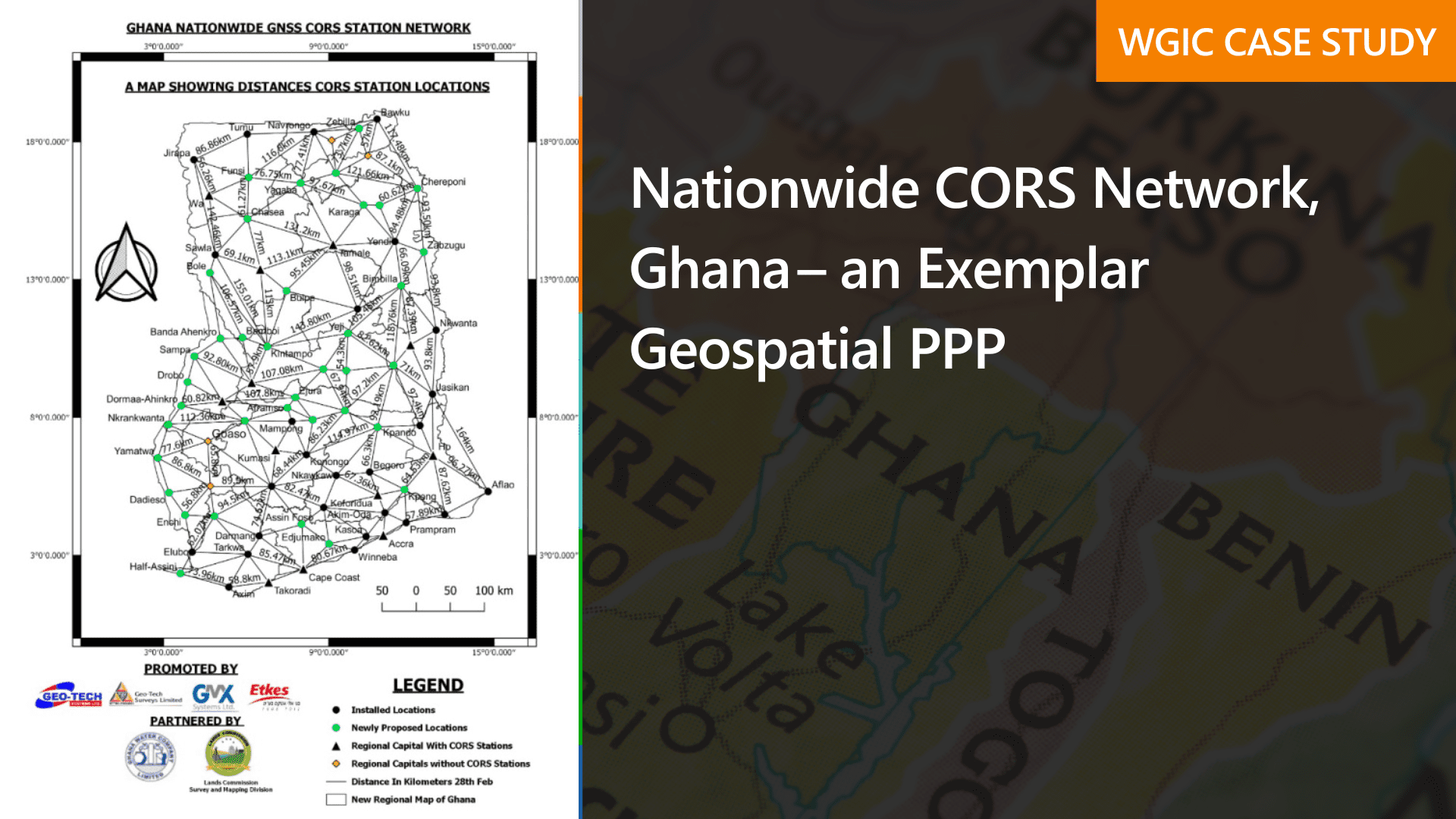The popularity of satellite-based positioning motivated Ghana, a West African nation, to leverage the existing global navigation satellite systems (GNSS). In the early 2000s, the Lands Commission, Ghana’s national mapping agency and survey department, approved using GNSS technology for performing surveys related to cadastre and other high-precision work. However, it soon recognized the need for a Continuously Operating Reference Stations (CORS) network to leverage GNSS effectively and produce high-accuracy geo-referencing data, reduce the turn-around time in surveying, and improve data sharing and data interoperability between the Lands Commission and its stakeholders.
The Partnership
In 2021, Geo-Tech Systems Ltd., Ghana, along with GMX Systems Ltd., Israel, entered into a public-private partnership with Ghana Water Company Limited and the Lands Commission’s Survey and Mapping Division for the installation of the first-ever nationwide CORS network with 85 stations, the most extensive net’s Survey and Mapping Division for the installation of the first ever nationwide CORS network with 85 stations, the biggest network in West Africa (at the time of writing this case study in mid-2023).
GMX Ghana is the principal partner providing the resources and bearing the project risks, while Geo-Tech, with 25 years of experience in providing survey services, is the local partner providing their investment through local expertise and human capital. Both parties agreed to provide maintenance and technical support associated with running the CORS Network, even as GMX hosts the CORS network software on its virtual platform. Ghana Water Company is a silent partner, but their site offices are home to most equipment setups. The Lands Commission’s partnership role included integrating the CORS receivers into the network, adopting the network, and standardizing it for cadastral surveys, hydrospatial surveys, and other geospatial applications. Lands Commission is solely responsible for quality control to ensure the network’s reliability, accuracy, and efficacy.
The stakeholders entered a memorandum of understanding (MoU) valid for twenty years. Geo-Tech Systems and GMX Systems chose to self-finance the project owing to the high cost of bank loans at the time of inception. They expect to recover their investment ($1.5 million when writing this case study) within five years unless intensified marketing efforts shorten that recovery time.
Successful Geospatial PPP
The partnership has birthed 52 CORS stations at the time of writing this case study with a coverage radius of 70 Km, allowing for a 90% coverage area of Ghana. The project’s stakeholders believe the key to the project’s progress to date was how they were guided and the allied 2431 Law as the underpinning laws and models to undertake the PPP. In addition, a well-recognized need for the CORS network and the benefits that will ensue, and the championing of the project by the Ghanian government made this geospatial PPP a reality.

“The vice president of Ghana is an economist by profession and heads the economic management team. We impressed upon him how land reforms and a well-structured land administration system could transform the fiscal process in terms of taxation, improve land security and valuation. In an effort to improve the economic stature of the country, he learned the value of accurate maps and the need for creating geospatial infrastructure in the country. He championed our efforts all the way. If it were not for him, we would not have been able to implement the project.”
– Lands Commission Executive, Ghana
Other attributes that led to the success of this PPP include (but not limited to):
- High ranking of Ghana on the Africa Geospatial PPP Readiness Index
- Existing policy on public-private partnerships in Ghana
- History of geospatial infrastructure and Earth observation projects in Ghana.
- Well-established management team and prior experience of Geo-Tech with private sector partners and public sector clients.
- Ability and willingness to invest resources into the project prior to successful contracting measures and revenue-sharing agreements being in place (the unknowns)
- Ability to withstand a long sales cycle
- Flexibility in business model design and development
- Willingness and flexibility to work with public sector client in terms of continuing discussions of the future operations and maintenance involved in the project
- Established relationships with partners (engineers and surveyors) and government agencies on smaller projects before taking this project up.
The creation of a nationwide CORS network in Ghana is a good example that fits into the definition of PPP. The overall Geospatial PPP process and the steps followed provide an overarching example for the geospatial industry to follow in Africa to develop successful geospatial PPP projects.
Note: For more information about the case study and about geospatial PPPs in Africa, download the WGIC report Africa Geospatial PPPs: Business and Financial Considerations here

Africa Geospatial Public Private Partnerships
The report demonstrates there are indeed strong needs and compelling stories for developing and supporting geospatial infrastructure and Earth observation (EO) sectors with PPPs in Africa.
The Africa Geospatial PPP Readiness Index ranks fifty-three African nations based on the strength of the enabling conditions and provides detailed guidance on various business tools for developing mature geospatial PPPs. The geospatial PPP how-to guide enumerates the process with a detailed list of steps to follow while developing a geospatial PPP to ensure its success.


